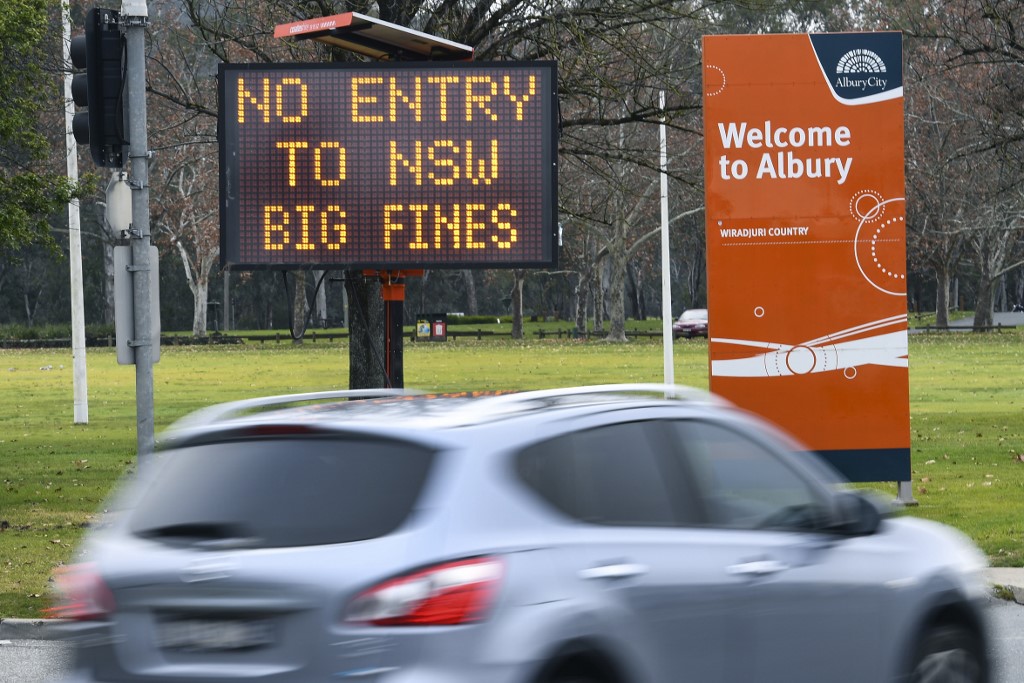(ATF) Hong Kong: Financial markets retreated after infections continued to soar in the world’s largest economy, causing investors to pause after yesterday’s rally.
Worries about the spread of the coronavirus pandemic have intensified worries about the economic impact. Atlanta Federal Reserve Bank President Raphael Bostic said in an interview with the Financial Times that the U.S. economic recovery is in danger of stalling due to the recent spike in new cases across many American states.
Investors have already lightened up in anticipation of the economy stumbling.
“We have downgraded U.S. equities to neutral on a tactical basis, after a strong run of outperformance versus global equities since the March trough,” said BlackRock Investment Institute in a note.
“We see a surge in COVID-19 cases in the U.S. potentially slowing the activity restart at a time when fiscal stimulus is at risk of waning. Yet the quality bias of the U.S. market lends some support and keeps us from turning negative.”
Earlier, Asian stocks paused after the recent rally helped China’s stock markets turn green for the year, with Japanese and Australian stocks not far behind. Investors are digesting the recent gains and looking at the implications of the rally.
“For the real economy, a big rally in stock prices is a double-edged sword. On the positive side, bull stock markets may be good for consumption thanks to the wealth effect, and good for business investment thanks to ease of access to cheaper funding,” said Nomura’s Chief China Economist Ting Lu. “On the negative side, funds, with some in the form of bank credit, may be redistributed from the real economy to stock market for speculation. The overly hot stock markets may also prevent Beijing from continuing its policy easing, which is necessary for a recovery from the COVID-19 shock.”
The mainland China stock index CSI 300 climbed 0.6% and is up 16% this year. The Nikkei 225 fell 0.44% and the Australian S&P/ASX 200 ended flat; both indexes have pared their year-to-date losses to single digits. The Hang Seng index fell 1.38%.
The Reserve Bank of Australia kept policy settings unchanged today but sounded more optimistic and its statement was more upbeat, highlighting that the downturn and decline in hours worked had slumped less than expected and that retail spending has picked up.
“We think that subdued demand will eventually result in a more pronounced weakening in inflationary pressures,” said Marcel Thieliant, Senior Australia & New Zealand Economist at Capital Economics. He expects inflation to bottom out near-zero instead of the 1% predicted by the RBA. “We think the Bank may yet respond with a renewed increase in its bond purchases, perhaps by early-2021.”
A renewed outbreak of the virus in Melbourne has already had an economic impact, hurting the states of Victoria, New South Wales and Queensland. New South Wales has closed its border with Victoria for the first time since the Spanish Flu in the last century.
Asian credit markets took a breather after the recent sharp rally with the Asia IG index narrowing by a basis point at 78/79 bps and sovereign CDS marginally tighter. TCL Tech , ABC Intl and ICTSI are in the market with dollar bond offerings.
Also on Asia Times Financial
Auto sales climb as van demand surges on e-commerce growth
China censors HK internet, but tech giants resist
Apple hits another pricey China hurdle
Sichuan Trust in trouble as list of claims, debts grows
Samsung Electronics forecasts jump in profit
India caseload surges as experts warn of virus going airborne
China to focus on strengthening health sector
Asia Stocks
· Japan’s Nikkei 225 eased 0.6%
· Australia’s S&P ASX 200 ended flat
· Hong Kong’s Hang Seng index tumbled 1.38%
· China’s CSI300 climbed 0.6%
· The MSCI Asia Pacific index fell 0.7%.
Stock of the day
Automaker Yadea Group Holdings rose as much as 22% after it said it is expected to record an increase of not less than 90% in net profit for the Period, as compared to the previous corresponding period. “Such expected increase in net profit is primarily attributable to the increase in the sales of electric two-wheeled vehicles,” it said in a statement.
























